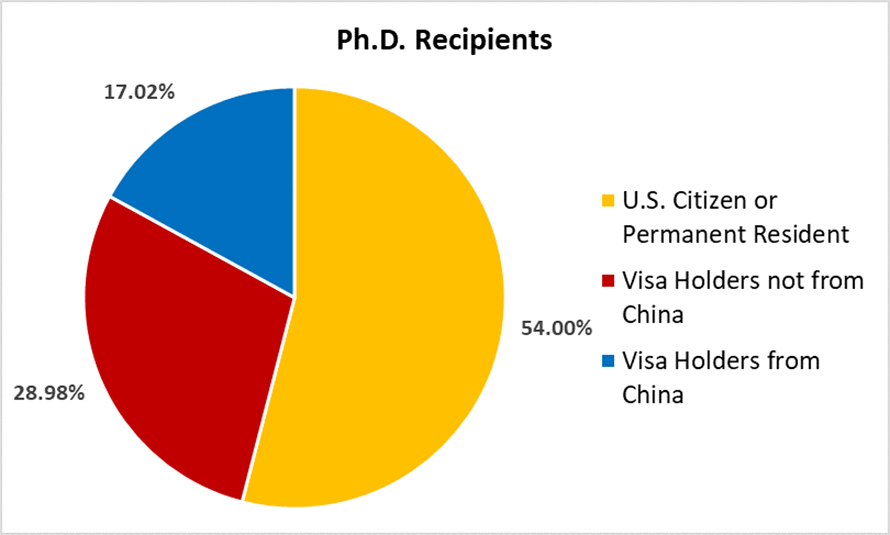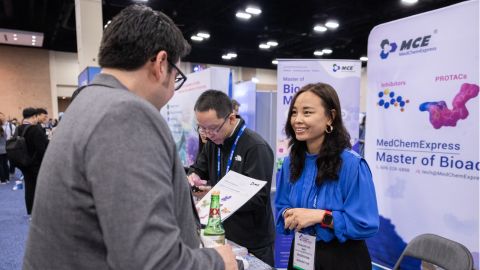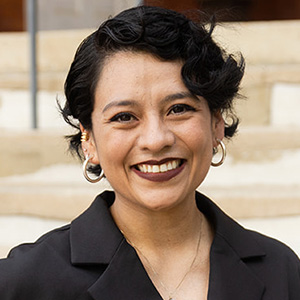
Will Congress revive the ‘China Initiative’?
A controversial 2018 policy designed to counter threats of economic espionage, known as the China Initiative, ended more than two years ago. However, in the first version of an appropriations bill for fiscal year 2024, policymakers included language to re-establish the program.
On March 3, after a request from the Congressional Asian Pacific American Caucus, the House and Senate Appropriations Committee removed the language for the program, but not before reviving concerns among activists and scientists.

The Asian Americans Advancing Justice is a national affiliation of five leading organizations advocating for the civil and human rights of Asian Americans and other underserved communities. Joanna YangQing Derman is the director of anti-profiling, civil rights and national security at AAAJ.
“While the China Initiative was terminated two years ago,” Derman said, “it is too early to perceive this time frame as ‘post China Initiative’ with policies at the state level and bills percolating in Congress today.”

The Asian American Scholar Forum is a nonprofit organization promoting academic belonging, openness, and equity. Gisela Perez Kusakawa, the executive director at AASF, emphasized the importance of killing efforts to revive the initiative.
“Ending of the China Initiative was a necessary step in the right direction for our country,” Kusakawa said. “Our country is made stronger when Asian Americans and immigrants can contribute freely without fear of discrimination, and we continue to address the lasting chilling effect caused by the China Initiative and advocate for policies that cultivate talent and open science.”
In a press release, CAPAC leaders stated that the China Initiative “failed to meaningfully safeguard national security” and stated that they would continue to “fight for laws that respect the equal rights of all Americans and our country moving forward.”
How the initiative started
The Department of Justice launched the China Initiative in 2018 as the first program focused on countering threats of economic espionage from a specific country. The initiative reflected the DOJ’s priority of countering Chinese national security threats and reinforcing the President’s national security strategy.
Science and advocacy organizations expressed concerns about racial profiling when a majority of defendants accused under the policy were of Chinese descent or nationality. Beginning in 2019, several cases brought charges against scientists on research integrity issues, the most prominent being a failure to disclose relationships with Chinese institutions on federal grant applications for funds from the Department of Energy, National Science Foundation, NASA, and National Institutes of Health.
Under the China Initiative, federal prosecutors openly investigated 150 US-based academic scientists, and 24 were prosecuted on criminal charges. During the program, 85 scientists resigned, retired or were fired due to cases of grant fraud.
Concerned about racial profiling and Asian Americans being viewed as “perpetual foreigners,” Rep. Ted Lieu, D-Calif., and 90 members of Congress sent a bicameral letter to Attorney General Merrick Garland in July 2021 requesting a Department of Justice investigation.
“It's important to link the concept of the ‘perpetual foreigner’ to discourse around national security,” Derman said. “If we were to reflect on the exclusion, traumatization and scapegoating of our communities, we’ll see that Asian Americans and Asian immigrants have been unfairly characterized as national security threats.”
The program ended on Feb. 23, 2022, after several cases resulted in dropped charges, dismissals or acquittals due to insufficient proof by the prosecutor.
Effects on the scientific community
Foreign-born talent makes up about one-quarter of the U.S. science, technology, engineering and mathematics workforce and more than half the nation’s postdoctoral community. China has supplied a significant number of U.S.-based scientists for more than two decades. In 2020, 46% of Ph.D. recipients in STEM fields were temporary visa holders, with 37% of these coming from China.
While it has been two years since the termination of the China Initiative, the program had a chilling effect on international collaboration within the scientific community while hampering academic freedom. Researchers and scholars of Chinese descent report fear of conducting research.
Scientists in STEM fields reported increased concerns about U.S. government investigations with the DOJ’s perception of “sensitive” information in their line of work. This fear climate has already pushed talented scientists to leave the U.S., endangering the nation’s ability to attract talent from China and around the world. In 2020 alone, more than 1,000 Chinese researchers left the country.
The AASF conducted a national academic climate survey from Dec. 2021 to March 2022 of 1,300 scientists of Chinese descent employed by U.S. universities in tenure-track positions to “provide data that demonstrates the wide-spread fear and its impact,” Kusakawa said. “It’s a powerful tool in highlighting the critical issues and calling the much-needed attention.”
The survey reported 42% of the scientists were fearful of conducting research and 65% were worried about collaborations with China. It also reported that 45% of scientists who have obtained federal grants now wish to avoid applying and 61% have thought about leaving the U.S.
An analysis of the National Science Foundation merit review system also reported a 17% drop in overall grant application submissions between 2011 and 2020, with a 28% decline in proposals from Asian investigators.
“It is critical that federal agencies and academic institutions work with Asian American and scholar communities to come together towards genuine solutions and a system that allows us to retain and attract talent and enhance a safe and welcoming academic environment,” Kusakawa said.
Updated federal policies
Research in the U.S. benefits from international collaboration and attracting scientists from around the world. The China Initiative appears to have weakened and ultimately slowed scientific progress due to concerns about racial profiling and unequal treatment.
Protecting research security is important, however, and advocacy organizations have encouraged policymakers to allow federal agencies, led by scientists, to tackle these issues in-house.
“It is important to continue pushing rigorous oversight on training curriculum for law enforcement agents on racial profiling, transparency in reporting across federal agencies, and dismantling the perpetual concept associated with the Asian American community,” Derman said.
In Dec. 2020, the U.S. Government Accountability Office released recommendations for six federal funding agencies to safeguard U.S. research from foreign threats. A month later, the White House Office of Science and Technology released a memorandum aimed at restoring scientific integrity in the federal government.
Prior to the report and memorandum, each federal agency had different reporting requirements and guidance, making it difficult for scientists to navigate grant applications for multiple funding agencies.
Since then, federal agencies such as the National Institutes of Health and the National Science Foundation have significantly improved their policies to provide clarity and security to the research community.
But the attempt to return the China Initiative in this year’s appropriations bill has kept advocates vigilant, including Durman, who said, “It is important that advocacy and science organizations continue working together to dismantle programs and policies that reinforce harmful stereotypes of Chinese researchers and damage the advancement of the scientific enterprise.”

Related links
Learn more about the China Initiative timeline from these source materials:
- U.S. Department of Justice launched the China Initiative
- Open letter to Attorney General Merrick Garland requesting a DOJ investigation
- White House Office of Science and Technology Policy memorandum
- Scientific Integrity policy recommendations and updates
- Proposed language to re-establish the China Initiative in FY 2024 appropriations bill
- Congressional Asian Pacific American Caucus members send letter to leadership
- Lawmakers Helped to Remove Language Reinstating the Failed Program From the Commerce, Justice, Science, and Related Agencies Appropriations Act of 2024
- Coalition of Asian American and Allied Partners Successfully Stop House Attempt to Reinstate ‘China Initiative’
- Data on the China Initiative’s effects
- ASBMB’s position statements
- ASBMB statement on foreign influences to research integrity in the United States
- ASBMB applauds Biden's memo on restoring scientific integrity in the federal government
- ASBMB statement on balancing open science and security in the U.S. research enterprise
- ASBMB statement on the termination of the Department of Justice's China Initiative
- Racial profiling hurts science
- ASBMB opposes re-instating the China Initiative in FY24 appropriations
Enjoy reading ASBMB Today?
Become a member to receive the print edition four times a year and the digital edition monthly.
Learn moreGet the latest from ASBMB Today
Enter your email address, and we’ll send you a weekly email with recent articles, interviews and more.
Latest in Opinions
Opinions highlights or most popular articles

Embrace your neurodivergence and flourish in college
This guide offers practical advice on setting yourself up for success — learn how to leverage campus resources, work with professors and embrace your strengths.

Survival tools for a neurodivergent brain in academia
Working in academia is hard, and being neurodivergent makes it harder. Here are a few tools that may help, from a Ph.D. student with ADHD.

Hidden strengths of an autistic scientist
Navigating the world of scientific research as an autistic scientist comes with unique challenges —microaggressions, communication hurdles and the constant pressure to conform to social norms, postbaccalaureate student Taylor Stolberg writes.

Black excellence in biotech: Shaping the future of an industry
This Black History Month, we highlight the impact of DEI initiatives, trailblazing scientists and industry leaders working to create a more inclusive and scientific community. Discover how you can be part of the movement.

Attend ASBMB’s career and education fair
Attending the ASBMB career and education fair is a great way to explore new opportunities, make valuable connections and gain insights into potential career paths.

Benefits of attending a large scientific conference
Researchers have a lot of choices when it comes to conferences and symposia. A large conference like the ASBMB Annual Meeting offers myriad opportunities, such as poster sessions, top research talks, social events, workshops, vendor booths and more.

